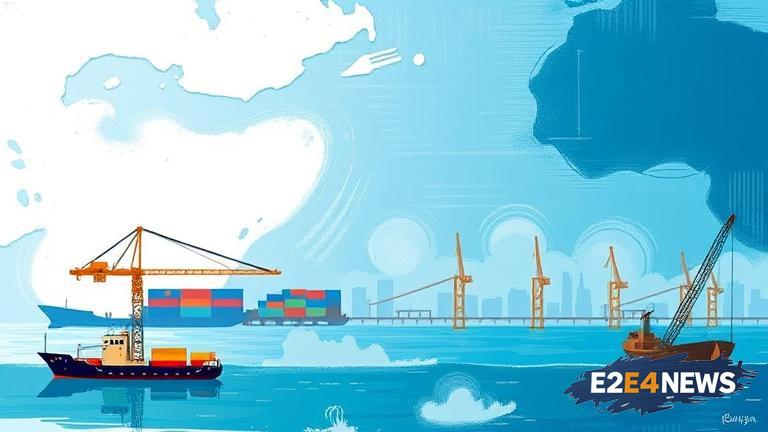The world of international trade is complex and multifaceted, with countries constantly seeking to balance their economic interests with the need to cooperate and facilitate global commerce. One of the key tools used by nations to achieve this balance is the tariff, a tax imposed on imported goods and services. While tariffs can provide a measure of protection for domestic industries, they can also lead to retaliatory measures and escalate into full-blown trade wars. The consequences of such conflicts can be severe, leading to increased prices for consumers, reduced economic growth, and even job losses. However, when used judiciously, tariffs can also create opportunities for countries to negotiate better trade deals and protect their strategic interests. The key to successful trade policy lies in finding the right balance between protection and cooperation. This requires a deep understanding of the complex interplay between economic, political, and social factors that shape global trade. By navigating these complexities, nations can create a more favorable trade environment that benefits both their own economies and the global community. The importance of cooperation in international trade cannot be overstated, as it allows countries to specialize in their comparative advantages and increase overall efficiency. Moreover, cooperation can also facilitate the transfer of technology, skills, and knowledge, leading to innovation and economic growth. Nevertheless, the challenges posed by tariffs and trade conflicts are very real, and nations must be prepared to address them through a combination of diplomacy, negotiation, and strategic planning. The use of tariffs as a tool of trade policy is not new, and historians can point to numerous examples of their use throughout history. However, the modern global economy is more interconnected than ever before, and the consequences of trade conflicts can be felt across the world. In this context, it is essential for countries to approach trade policy with a sense of responsibility and a commitment to finding mutually beneficial solutions. The benefits of cooperation in international trade are numerous, ranging from increased economic growth and job creation to improved living standards and poverty reduction. Furthermore, cooperation can also help to promote peace and stability, as nations that trade with each other are less likely to go to war. Despite these benefits, the path to cooperation is not always easy, and nations must be prepared to make difficult choices and compromises. The role of international institutions, such as the World Trade Organization, is crucial in facilitating cooperation and resolving trade disputes. These institutions provide a framework for nations to negotiate and implement trade agreements, and they help to promote transparency and accountability in trade policy. In conclusion, the balance between tariffs and trade opportunities is a delicate one, and nations must approach it with caution and careful consideration. By navigating the complexities of global trade and seeking to cooperate with other nations, countries can create a more favorable trade environment that benefits both their own economies and the global community. The future of international trade will depend on the ability of nations to find this balance and work together to promote peace, stability, and economic growth. As the global economy continues to evolve, it is essential for countries to remain flexible and adaptable, seeking to negotiate new trade agreements and resolve disputes in a fair and transparent manner. Ultimately, the success of international trade will depend on the ability of nations to put aside their differences and work towards a common goal of promoting economic growth, job creation, and improved living standards. The challenges posed by tariffs and trade conflicts are significant, but with careful planning, diplomacy, and cooperation, nations can overcome them and create a brighter future for themselves and the global community.
